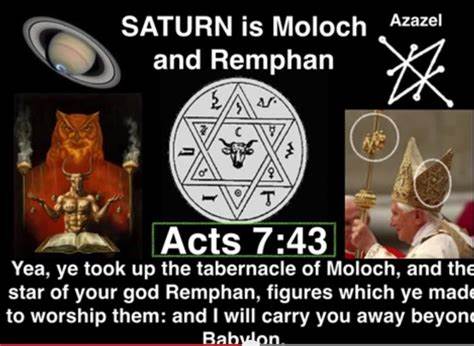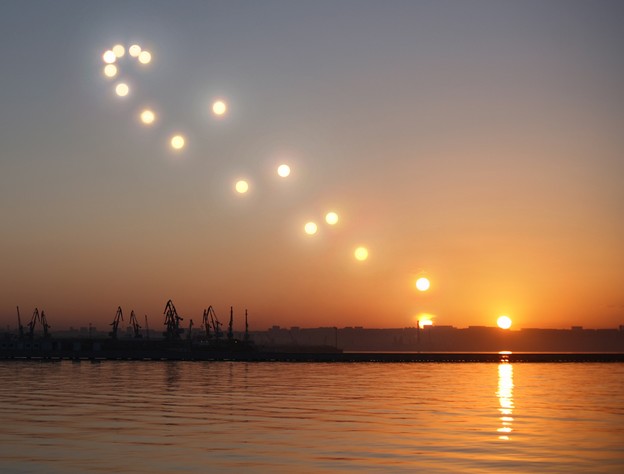A Hebrew Cosmology (Fair Use)
The Cosmos as Seen by the Ancients:
Armstrongism in Contention with the Cosmology of Genesis
By Scout
“Why haven't scientists compared the record of Genesis with the facts of geology? NEVER has there been an age like this one. An avalanche of scientific information is pouring down upon specialist and layman alike. No one is able to keep up with the torrent of new knowledge. But is man the wiser for all this new knowledge? Are the latest conclusions of geology, of archaeology, or history any nearer the truth? Or are we being crushed by the sheer weight of new ignorance new superstitions, this time garbed in the respectable clothes of Scientific Knowledge?” - Herman L. Hoeh, “Genesis vs. Geology,” Plain Truth Magazine, July 1966.
When I was a kid, if found the first chapter of Genesis to be very confusing. The discussion it contained of “waters” and “firmaments” seemed odd. This is because the Ancient Cosmological Model (ACM) used by the author of the first chapter of Genesis does not comport with what we know of the Cosmos today. It is, rather, an ancient model that had currency in the Middle East at the time of the composition of Genesis. A version of this same model entered the Greco-Roman world. Herman Hoeh’s anti-science statement above is not an apologetic for this scriptural ACM. Rather, in his comprehensive article on Genesis, cited, he provides an alternative explanation for the events of Genesis. Hoeh omits any reference to the ACM. Why the omission? We can only conjecture on this. Since Hoeh overlooks the critical data concerning ACM, his exegesis is then rendered incomplete and inaccurate.
This essay will make the case that Genesis uses the ACM. Hoeh did not admit this fact or address it that I can find in my research. And how does the use of the ACM affect the validity of the Bible?
The Ancient Cosmological Model
In ancient Semitic cosmology, the Cosmos looked a lot different than it does to us. They believed in a Three Story Universe: Heaven, Earth and the Underworld. We have the modern science of astronomy and they, back then, did not. They envisioned the sky as a ceiling of solid material. Apparently, they thought it was transparent because they believed that the ceiling (firmament) held back water and the water is what made the sky blue. They also believed there were windows or floodgates in this ceiling that permitted water to come down out of the sky. They also believed that the ceiling was not that far away, hence, the attempt to reach it by building a tower. And above the vault of heaven, above the waters, was where the Throne of God was located.
So, to these ancient people, the Universe was shaped like a big plate with a bowl inverted over the top of it. The plate was the Middle Story or the earth. The bowl was the Top Story which is the vault of heaven and beneath the plate was the Bottom Story or the underworld which also held water. And there was empirical evidence that supported this view. The ancients could see the circle of the horizon. Rain fell out of the sky. And if you dug into the ground deep enough you found water. This ACM is what was described in the Book of Genesis.
In Source Criticism, the description in Genesis 1 is attributed to the Priesthood. I think they were the educated class in ancient Israel. At its origin this concept may have been provided by Moses and only curated by the Priesthood. No doubt, Moses, educated in Egypt, was familiar with the ACM. So, it is not surprising that their view of Genesis was pretty much what was found broadly in the Middle East.
An interesting statement of this history is found in the following video by The Bible Project:
Hoeh’s Omission
Herman Hoeh posited a different idea entirely about Genesis 1. This was the idea that the creation took place billions of years before Genesis 1 and then a great destruction occurred. And the “Creation Week” was not that at all. In the Hoeh cosmogony, it was more of a “Housekeeping Week.” It was a clearing of the chaotic environment surrounding the earth, already created, to some depth in space. While this theory can be made to fit some parts of Genesis 1, what Hoeh does not do in his theory is account for all the Genesis data. We have the following on the Second Day:
“And God said, ‘Let there be a firmament in the midst of the waters, and let it divide the waters from the waters.’ And God made the firmament, and divided the waters which were under the firmament from the waters which were above the firmament: and it was so. And God called the firmament Heaven. And the evening and the morning were the second day. And God said, ‘Let the waters under the heaven be gathered together unto one place, and let the dry land appear’: and it was so. And God called the dry land Earth; and the gathering together of the waters called the Seas: and God saw that it was good. (KJV, Genesis 1:6-9).”
First, this is a creation activity not a housekeeping activity. Next, this description from the KJV corresponds to the ACM. In this model, God creates heaven and this separates two great oceans. One in the Top Story and one in the Middle Story. Then God exposes land in the Middle Story by concentrating the waters in certain locations. At other places in scripture, we find “The Pillars of the Earth” and “The Fountain of the Deep” that also fit with the ACM.
But the publications of the Worldwide Church of God (WCG) nowhere address this important data in Genesis 1:6-9 that I have been able to find. The term “firmament” does not appear often in WCG publications and it does not appear in Hoeh’s article cited above at all. Hoeh writes of the clearing of the Earth and its celestial environment but does not write of the direct connection of Genesis to the ACM. He is in contention with scripture but it is subtle rather than explicit. He simply does not exegete Genesis 1:6-9. My guess is that Hoeh knew that the ACM was an ancient theory about the organization of the Cosmos and that it did not agree with modern scientific findings. There is no great ocean of water being contained behind the vault of heaven. The earth is not a disc and the sky a half-dome. And the world does not float on the waters of the Great Deep. But, perhaps, it was easier to let sleeping dogs lie.
The Impact on the Validity of the Bible
One reason Hoeh may have ignored a direct reference to the ACM is that it connects the Bible to a model of the Cosmos that ancient peoples believed in but which science has demonstrated to be incorrect. In Genesis 1:1 there is even a description that corresponds to the Primordial Chaos of ancient Semitic cosmology. The Bible, however, presents the creation event in stark abstraction (q.v., Jewish Study Bible) that does not portray the drama found in Semitic cosmology. But should the use of the ACM lead us to invalidate the Bible?
It is important to recognize that the Bible spoke to people in terms that they recognized. You could not write a treatise on modern quantum mechanics and expect the readers at that time to understand it without some preparation in modern physics. For that matter, we probably could not now understand a treatise on the Cosmos written a couple of thousand years in the future. What was to the Ancients state-of-the-art cosmology has perforce become to us now allegory. This ancient view has staying power throughout this transition from cosmology to allegory because the spiritual principles carry forward and have not changed. I have no doubt that when the Priesthood wrote or redacted this physical description of the Cosmos, they actually believed their view was realistic and accurate. It was based on the astrophysics of their day. Their hard science now serves us as poetry and allegory.
Summation
The fact that the Bible contains the Ancient Cosmological Model does not make the Bible antique or irrelevant. Genesis is not in contention with geology. Only certain interpretations are in contention with geology. The Bible is foremost a work of theology – a work of spiritual principle. These spiritual principles may be carried in a physical framework that is subject to revision as human knowledge grows. Even now we are people who only know the “observable” universe. Much is yet to be revealed. To avoid the constraint of the growth in human knowledge, the Bible would have to become totally abstract. Instead, it is a book of an ancient people and their behaviors in their time and place, yet comprehensible to us based on our lived experience.








